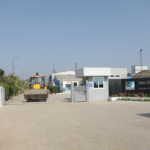You must be searching that “can an NRI can buy Residential/Commercial Property in India?”. The answer to the question is yes. Your search comes to an end here. In this article, we will discuss and answer some of the relevant questions like what are the procedures to purchase a Residential/Commercial Property by NRI in India, and many more.
This is to brief you that being aware of the guidelines of the Foreign Exchange Management Act(FEMA), NRI can directly invest/ buy the Residential/commercial property. Hence, the real estate investment guidelines of the Foreign Exchange Management Act(FEMA) are the same for both the categories i.e. the PIOs (Persons of Indian Origin) and the NRIs (Non-Resident Indians). However, before Diving straight into the topic of NRI’s purchase context. Let us understand who is an NRI? /why there are so-called NRIs?
Who is called an NRI (Non-Resident Indian) in Nay Pyi Taw , Myanmar?
According to our team research, as per the guidelines and norms mentioned in the income tax department of India. NRI (Non-Resident Indian) in Nay Pyi Taw , Myanmar is a person who is a citizen/ Resident of India or a PIO (Person of Indian Origin) who is not a resident of India. However, to determine whether a person is a Non-Resident Indian or not. Under Section 6 of the Income-tax Act, the person’s residential status need to be found out. Similarly, under the same section 6 of the Income-tax Act, a person is treated as a non-resident of India if he/she is not a citizen of India. A person is considered to be a citizen of India in any previous year if he/she fulfills any of the conditions given below then only a person is said to be an NRI:
- if the person is residing in India for a time interval of 182 days or more during the previous year. Then he/she is treated as a Non-Resident Citizen of India.
- if the person is residing in India for a time interval of 60 days or more during the previous year and 365 days or more during 4 years i.e. just immediately the preceding previous year. Then he/she is treated as a Non-Resident Citizen of India.
But, if you talk about an Indian resident and a person of Indian Origin (PIO) who travels to India during the year. Then 60 days to be replaced with 182 days as mentioned above in section (2). Similarly, some relaxation is provided to the Indian resident who leaves India in any of the previous years. Either for employment or as a crew member.
The Finance Act, 2020 effective from Assessment Year 2021-22 has made some changes in the above i.e. an exception to be provided that the time interval of 60 days be amended to 120 days as mentioned above in section (2). If an Indian resident or a person of Indian Origin whose income per annum makes sure income other than the foreign sources which are more than Rs. 15 Lakhs during the previous year. Here, we need to clarify a thing income from foreign sources means incomes that are produced outside India (excluding income that came from a business or profession set up in India).
Now, have a fair knowledge of the NRI. First, let us understand the Properties which NRIs can buy in India.
NRIs in Nay Pyi Taw , Myanmar
Myanmar, known as Burma, is a Southeast Asian country in the continent’s west. The Union of Burma, the country’s official English name since 1885, was changed to the Union of Myanmar in 1989; the country has been known in Burmese and Myanmar since the 13th century. Rangoon, the English name for the city that functioned as the country’s capital from 1948 to 2006, was likewise abolished in 1989 in favour of Yangon, the Burmese name.
In 2005, the government began to relocate its administrative headquarters, first to Pyinmana (about 200 miles [320 kilometres] north of Yangon) and later to Nay Pyi Taw (Naypyidaw), a newly built city near Pyinmana. In 2006, the capital of Myanmar, Nay Pyi Taw, was declared.
Capital:- Nay Pyi Taw (Naypyidaw)
Population:- (2021 est.) 55,199,000
Monetary Unit:- Myanmar Kyat (K)
Indian NRI Population:- 9207
Official Language;- Myanmar (Burmese)
Total Area:- (Sq Km)676,577
Monetary Unit:- Myanmar kyat
Land area: 657,741 sq km
Literacy rate: 92.7%
Land
Myanmar is the northernmost nation in Southeast Asia, stretching from latitude 10° N to around 28° 30′ N. It is formed like a kite, with a long tail that flows south along the Malay Peninsula. The nation is surrounded on the north and northeast by China, the east by Laos, the southeast by Thailand, the south and southwest by the Andaman Sea and the Bay of Bengal, the west by Bangladesh, and the northwest by India. It has a total length of around 1,275 miles (2,050 kilometres) from north to south and a width of roughly 580 miles (930 kilometres) from east to west at its widest point, which is in the centre of the nation near the latitude of Mandalay.
Economy of Myanmar
Myanmar’s economy, which is centred on the kyat (the national currency), is one of the region’s least developed and is primarily agricultural. A large portion of the population works directly in agriculture. Many people who work in other industries are indirectly involved in agriculture through operations including transportation, processing, marketing, and exporting agricultural products.
Myanmar also has a sizable unofficial economy. Teak and diamonds are both officially and illegally exported, while large amounts of consumer products are trafficked into the nation. Furthermore, northern Myanmar is one of the world’s top opium producers.
Cultural life
Since the 1st century CE, Buddhism has been a component of Myanmar’s culture, blending with non-Buddhist beliefs. The spectacular architecture and sculpture of Myanmar’s many temples and monasteries, particularly those in Yangon, Mandalay, and Pagan (Bagan), the ancient capital of west-central Myanmar, are the most visible manifestations of Buddhist culture. Myanmar’s culture is likewise a mix of royal and popular customs. Although the theatrical traditions of the Burman court looked to be dying when the monarchy was abolished in the late nineteenth century, the legacy persisted among the populace in a nonroyal environment.
In the heart of Myanmar, some 3-and-a-half hours from its former city, Yangon, is a little bit of India. This location is known as Zeyawaddy, also known as Myanmar’s “Little India.” According to Myanmar Times, the “Know India Programme,” a new bilateral effort between the Indian and Myanmar governments, would enable young Myanmar-Indians aged 18 to 30 to learn more about their historical and cultural links in India.
This distinctly Indian-looking location dates from the British colonial era when labourers were sent from India to assist in the conversion of impenetrable woods into farmland and rice fields. Those who live in Zeyawaddy are part of Myanmar’s larger “Myanmar-Indian” population, and some may take part in the Know India Program.
Myanmar’s population of around 55 percent is made up of people whose ancestors may be traced back to India. As a result, there have been numerous cultural and religious exchanges between the two nations, bringing people together on several occasions.
Who can Purchase of Residential/Commercial Property in India for NRIs in Nay Pyi Taw , Myanmar
According to the guidelines mentioned by the Reserve Bank of India (RBI), NRI in Nay Pyi Taw , Myanmar and PIO(Persons of Indian Origin) can buy any Commercial or Residential land in India. Here only those NRI/PIO are allowed to buy the property who have a valid Indian Passport. Regarding the same, there is no need for any particular permission from the central bank. And also there is no need for sending any relevant emails or intimation messages to RBI for the same.
So, a person who is an NRI or PIO can buy or purchase any number of commercial or residential land under the existing RBI guidelines. Even the income tax department also permits the NRI or PIO to obtain as many residential or commercial properties as he/she needs.
Properties Which NRIs Cannot Buy in India for NRIs in Nay Pyi Taw , Myanmar

Due to some reason, if the NRI in Nay Pyi Taw , Myanmar cannot visit India then the necessary documents related to the purchase can be fulfilled by any other known person of NRI. However, as per the guidelines of RBI, an NRI is not allowed to purchase any agricultural or plantation property in India. Linking to the same regulation, they are also not allowed to buy farmhouses in India. In case, if an NRI is willing to purchase any of the above lands like farmhouses, and agricultural land. Then he/she has to seek permission from the RBI, RBI will then come to a resolution on whether to allow it or not that depending on the case profile.
Is Joint Ownership allowed for NRIs in Nay Pyi Taw , Myanmar?
Yes, it is allowed for the NRIs. This means that an NRI in Nay Pyi Taw , Myanmar who is willing to purchase land with any other NRI (jointly) or through Single ownership is allowed to do so. But here is the thing you should keep in mind if an Indian resident or person is not allowed to buy a property in India due to some allegation against him. Then you are not allowed to become a joint holder to buy any property, and It doesn’t matter how much the 2nd holder has contributed to the purchase.
Will a person (Resident) continue his/her ownership or not even after becoming an NRI for NRIs in Nay Pyi Taw , Myanmar?
Here the question is what if a person already owns a property in India, Later becomes an NRI in Nay Pyi Taw , Myanmar ? Then such a person can continue his/her ownership in the same pattern. The answer to the question is yes he can continue to acquire the ownership. Not only this but also an NRI is allowed to have the continuing ownership of any agricultural land, plantation property, or farmhouse that he has owned before becoming an NRI. However, as per the above discussions, An NRI is not allowed to own such lands as agricultural and farmhouses. Even they are also allowed to emit the property, irrespective of the date when the property was purchased. Remember, the rent received from such property has to pass from the Indian taxation system imposing a tax on them then you can receive it.
Similarly, an NRI in Nay Pyi Taw , Myanmar is allowed to sell or gift the authorized and legal property to any person who is residing in India or to another NRI. They can sell agricultural, plantation property, or farmhouse to a person who is residing in India but not to another NRI.
What is the mode of payment for the purchase of land in India for NRIs in Nay Pyi Taw , Myanmar?
Being an NRI in Nay Pyi Taw , Myanmar if you want to purchase an authorized and legal property in India. Then you can purchase the property. But to acquire the land or to gain the ownership of the land, you must have an intermediary exchange of credit funds with the seller. So, to have the exchange of funds you must know the mode of payment. The NRI can either pay through the banking medium by payment done from abroad. The 2nd method is the NRI can use the balance in their NRE(Non-Residential External) /NRO(Non-ResidentOrdinary) Account or FCNR (Foreign Currency Non-Resident) Account – In brief, FCNR is a kind of fixed deposit account specially opened for the deposits from overseas/foreign.
However, the money is to make payment settlements and i.e. done through banking channels only. Since the payment cannot be rendered as traveler’s cheques or foreign currency in India. So, by providing them some concession they are allowed to make a finance purchase of a property with the available facility of home loans in India via Indian rupees. Hence, this home loan can be offered by the Indian assistance of the NRI for the reason to assist them in financing the property either through a housing finance company or sponsoring bank.
Now, coming to the payments done through EMI is also a mode of payment. EMI for fulfilling the home loan availed in Indian Currency in India. The same transfer of money can either be done through direct money transfer from abroad or from the credit balance present in the NRE/NRO/FCNR account of the NRI person. Here is something credential point for you i.e. you can use the rents you receive from the property you brought for remittance of the home loan. This can be done through the transfer of money to the borrower’s account through the account of the relatives of such borrowers.
Is there any procedure to buy a property by NRIs in India for NRIs in Nay Pyi Taw , Myanmar?

Yes, there is a certain set of procedures to follow while an NRI in Nay Pyi Taw , Myanmar is showing interest to buy a property in India. Given below is the list of sequential processes that you should acquire the same:-
- As per the latest RBI guidelines and regulation act, an NRI can buy a specific property i.e. either individually or through a joint venture with any other NRI. The most comfortable or desirable process to purchase a property is by following or adopting the power of Attorney.
- adding to the process, you have to assign a power of attorney as a legal counselor. As he is well experienced in his field. So, he can assist you in providing the details of the real estate and also all such related formalities and documents needed. Purposefully this strategy is used by every individual because it is effective and cheap.
- As your legal counselor is experienced and well-versed with the law and regulations. And also he must be familiar with the real estate market business. So, keeping this thing in mind he can assist you in providing the best deals in the market which are available. Apart from this, we will further suggest you assign a specific General Power of Attorney (GPA) or Special Power of Attorney (SPA) either of them you think is reliable, whose everyone is easier to communicate with.
Things to keep in mind before buying a property by NRI in India for NRIs in Nay Pyi Taw , Myanmar
- An NRI in Nay Pyi Taw , Myanmar is not supposed to buy or purchase agricultural or plantation property and farmhouses in India. But they can buy other properties like residential or commercial. In case you have any specific reason to buy the agricultural land, the Reserve bank of India (RBI) can consider your interest depending on your case.
- There is no limit on the number of home loans you avail, to purchase the properties in India. But remember to follow the legal and procedural method to avail of the loans and while repayment also.
- If you want to conduct the transaction, by some trustworthy person on behalf of your presence. Then the registration of the property must be given to the Power of Attorney(PoA). The PoA holder signs the document on behalf of the NRI, by providing a copy of the PoA to the concerned authorities.
- Likewise a normal resident of India, an NRI is also required to pay the necessary taxes like stamp duty, registration fee, and post-purchase property taxes. And also GST in some cases when the property is under construction.
- You can purchase the property in India to acquire monthly rentals. But, you have to pay the tax (30% TDS will be deducted at source) on every monthly credit. The rest of your amount will be sent back to you under the FEMA rules.
- If you have earned a profit through the sale of Residential or Commercial property. The amount will return to you after a considerable deduction of TDS between 20% to 30%. It depends on the quantity of your gain i.e. Long-term or Short-term Gain.
This is enough relevant knowledge you need to have while purchasing a residential or commercial property if you are an NRI in India. We can understand that an NRI in Nay Pyi Taw , Myanmar could face some difficulty while finding the type of property he/she can invest in or buy at the first. Then the second thing is the mode of payment. How to do the payment is the crucial step for buying the house. Here the role of the legal counselor also plays a vital in understanding the markets and providing you the suitable locations to buy the property.
Hence, we believe the article which is formulated by us has given a fair idea about the topic of Purchase of Residential/Commercial Properties by NRI in India. If you still have any queries regarding the Purchase of Residential/Commercial Property by NRI in India. Then be the first to put up your question in the comment section given below. As we will be assisting you to answer your queries as early as possible. Don’t forget to share your valuable feedback in the comment section. Stay tuned and please follow the website for more relevant articles like this Purchase of Residential/Commercial Property by NRI in India.
Frequently Asked Questions about Purchase of Residential/Commercial Property by NRI in India for NRIs in Nay Pyi Taw , Myanmar
Is PAN Required for Purchase of Residential/Commercial Property by NRI in India?
Ans. Yes. PAN is Required for Purchase of Residential/Commercial Property by NRI in India. In Case NRI Doesn’t have PAN Card. Then He/She Needs to Apply for PAN Card.
For Further Information about how to apply PAN Card in India by NRI
Is TAN Mandatory for Purchase of Residential/Commercial Property by NRI in India?
Ans. Yes. TAN is Mandatory to Deduct TDS on Purchase of Residential/Commercial Property If the property is being purchased from NRI but TAN is not mandatory if the property is being purchased from a Indian Resident.
IS TDS Applicable on Purchase of Residential/Commercial Property by NRI in India?
Ans. Yes. TDS is Deductible on Purchase of Residential/Commercial Property by NRI in India for NRIs in Nay Pyi Taw , Myanmar
As per Section 195 of Income Tax Act, TDS Rates as follows:-
The rate of TDS depends on the nature of capital gain arising to the NRI which are as follows: –
Short Term Capital Gain – When the property is held for a period of less than 2 years then the gain arising to the NRI is short-term in nature & taxable according to the applicable income tax slab Rate. The surcharge and cess shall also be added to the applicable tax rate as per the income tax slab Rate in the similar manner as calculated below for the long-term capital gain.
Long Term Capital Gain –When the property is held for a period of 2 years or above then the gain arising to the NRI is Long-term in nature & taxable @ 20% (plus surcharge and cess).
The effective rate of TDS in case of long-term capital gain for the FY 2018-19
|
PARTICULARS |
LESS THAN 50 LAKH | 50 LAKH TO 1 CRORES | MORE THAN 1 CRORES |
| Tax Rate | 20% | 20% | 20% |
| Plus: Surcharge | 0% | 10% of above | 15% of above |
| Total Tax including Surcharge | 20% | 22% | 23% |
| Plus: Cess | 4% | 4% | 4% |
| Applicable TDS Rate | 20.80% | 22.88% | 23.92% |








































